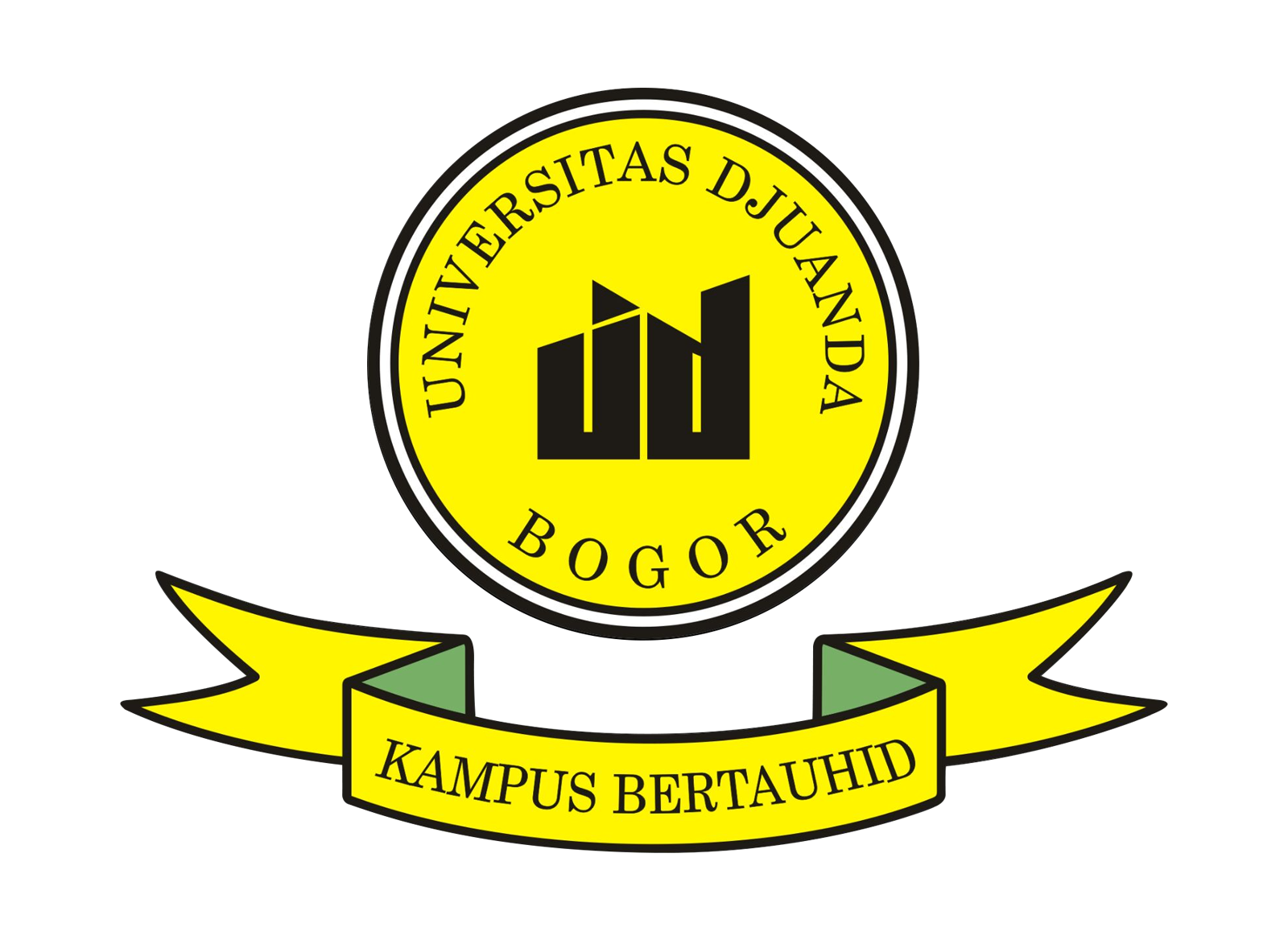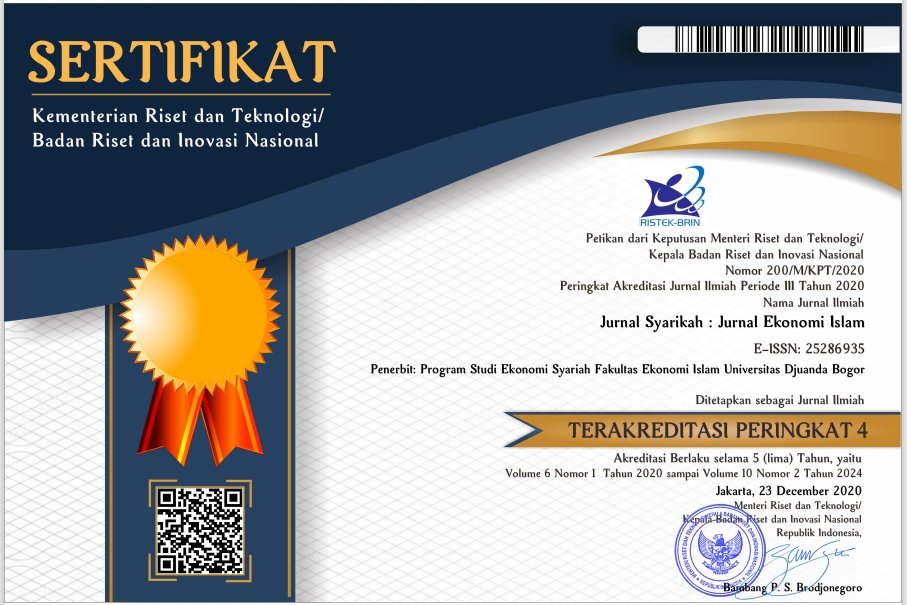STRATEGY OF OPTIMALIZATION CASH WAQF IN INDONESIA
DOI:
https://doi.org/10.30997/jsei.v4i2.1486Keywords:
Cash Waqf, Socialization, Regulation, Nazhir, SolutionAbstract
This study aims to identify various problems of cash waqf management in Indonesia. Identification of these various problems is expected to be formulated by various alternative solutions. Based on the research, it was identified that there were three main obstacles in the process of optimizing cash waqf, namely socialization, regulations and Nazhir, all of which were broken down in several sub-problems. The solutions that can be offered from these three constraints are socialization programs, both on understanding and cash waqf mechanisms, improving existing cash waqf regulations, specifically on the role of BWI and funding for the development of cash waqf, as well as programs designed to improve capacity asset management for Nazhir. Based on this solution, the strategy that can be carried out is more comprehensive and coordinated socialization, making regulations that can optimize the role of BWI and also optimize funds for the development of cash waqf, and continuous improvement of Nazhir's competencyReferences
Adeyemi, A. A., Ismail, N. A., & Hassan, S. S. B. (2016). An Empirical Investigation of the Determinants of Cash Waqf Awareness in Malaysia. Intellectual Discourse, 24(0).
Dahlan, R. (2015). Faktor-faktor Yang Memengaruhi Persepsi Nazhir Terhadap Wakaf Uang. Al-Iqtishad: Jurnal Ilmu Ekonomi Syariah, 6(2), 305–315.
Fanani, M. (2011). Pengelolaan Wakaf Tunai. Walisongo: Jurnal Penelitian Sosial Keagamaan, 19(1), 179–196.
Furqon, A. (2011). Analisis Praktek Perwakafan Uang pada Lembaga Keuangan Syariah. Walisongo: Jurnal Penelitian Sosial Keagamaan, 19(1), 157–178.
Huda, N., Anggraini, D., Rini, N., Hudori, K., & Mardoni, Y. (2014). Akuntabilitas Sebagai Solusi Pengelolaan Wakaf. Jurnal Akuntansi Multiparadigma, 5(3), 485.
Huda, N., Rini, N., Mardoni, Y., Anggraini, D., & Hudori, K. (2017). Manajemen Pengelolaan Wakaf di Indonesia Timur. EKUITAS (Jurnal Ekonomi dan Keuangan), 20(1), 1–17.
Ilyas, S. (2014). Perkembangan Perwakafan di Kota Batam. Jurnal Bimas Islam, 7(4), 783–795.
Indonesia, & Direktorat Pemberdayaan Wakaf. (2007). Pedoman pengelolaan wakaf tunai. Jakarta: Direktorat Pemberdayaan Wakaf, Direktorat Jenderal Bimbingan Masyarakat Islam.
Md Saad, N., Kassim, S., & Hamid, Z. (2013). Involment of Corporate Entities in Waqaf Management: Experiences of Malaysia and Singapore. ResearchGate.
Moleong, L. J. (2007). Metodologi Penelitian Kualitatif. Bandung: Remaja Rosda Karya.
Muntaqo, F. (2015). Problematika dan Prospek Wakaf Produktif di Indonesia. Al-Ahkam, 1(25), 83–108.
Nugroho, S. A., & Fahmi, A. (2013). Aplikasi Sistem Informasi Geofrafis e-Wakaf Sebagai Tool Pengelolaan Aset Wakaf pada Kantor Kementerian Agama Kota Surakarta. Techno.Com, 12(2), 82–89.
Prihatini, F., Hasanah, U., & Wirdyaningsih, 1970-. (2005). Hukum Islam : zakat dan wakaf : teori dan prakteknya di Indonesia / Farida Prihatini, Uswatun Hasanah, Wirdyaningsih. Jakarta: Diterbitkan atas kerjasama Papas Sinar Sinanti dengan Badan Penerbit Fakultas Hukum Universitas Indonesia.
Saaty, T. L. (2005). Theory and Applications of the Analytic Network Process: Decision Making with Benefits, Opportunities, Costs, and Risks (3 edition). Pittsburgh: RWS Publications.
Saaty, T. L., & Vargas, L. G. (2013). Decision Making with the Analytic Network Process (2nd ed.). Springer US.
Trochim, W., Donnelly, J. P., & Arora, K. (2015). Research Methods: The Essential Knowledge Base (2 edition). Boston, MA: Wadsworth Publishing
Downloads
Published
How to Cite
Issue
Section
License
Authors who publish with Jurnal Syarikah: Jurnal Ekonomi Islam agree to the following terms:
- Authors retain copyright and grant the journal right of first publication with the work simultaneously licensed under a Creative Commons Attribution 4.0 International License that allows others to share the work with an acknowledgement of the work's authorship and initial publication in Jurnal Syarikah: Jurnal Ekonomi Islam.
- Authors are able to enter into separate, additional contractual arrangements for the non-exclusive distribution of the journal's published version of the work (e.g., post it to an institutional repository or publish it in a book), with an acknowledgement of its initial publication in Jurnal Syarikah: Jurnal Ekonomi Islam.
- Authors are permitted and encouraged to post their work online (e.g., in institutional repositories or on their website) prior to and during the submission process, as it can lead to productive exchanges, as well as earlier and greater citation of published work
SURAT PERNYATAAN PEMINDAHAN HAK CIPTA[1]
Yang bertanda tangan di bawah ini adalah penulis naskah yang berjudul:
yang diajukan untuk dipublikasikan pada Jurnal Syarikah : Jurnal Ekonomi Islam ISSN 2442-4420 menyatakan bahwa:
Kami bersedia memindahkan hak publikasi, distribusi, reproduksi, dan menjual naskah kamiyang berjudul tersebut di atas sebagai bagian dari Jurnal Syarikah kepada Dewan Redaksi Jurnal Syarikah : Jurnal Ekonomi Islam ISSN 2442-4420
Demikian surat pernyataan ini saya buat dengan sadar, penuh rasa tanggung jawab, dan tanpa paksaan dari pihak mana pun!
No | Nama Penulis (lengkap dengan gelar akademik) | Nama dan Alamat Institusi, email | Tanda Tangan | Tanggal |
1 |
|
|
|
|
2 |
|
|
|
|
3 |
|
|
|
|
4 |
|
|
|
|
5 |
|
|
|
|
[1] Dikirim ke Dewan Redaksi Jurnal Syarikah, Program Studi Ekonomi Islam Fakultas Ekonomi Islam Universitas Djuanda Bogor, Gedung B Lantai IV Jl Tol Ciawi No. 1 Kotak Pos 35 Ciawi Bogor 16720, difaksimilikan ke 02518240985, dan hasil scanning-nya diemailkan ke Jurnal.Syarikah@unida.ac.id






